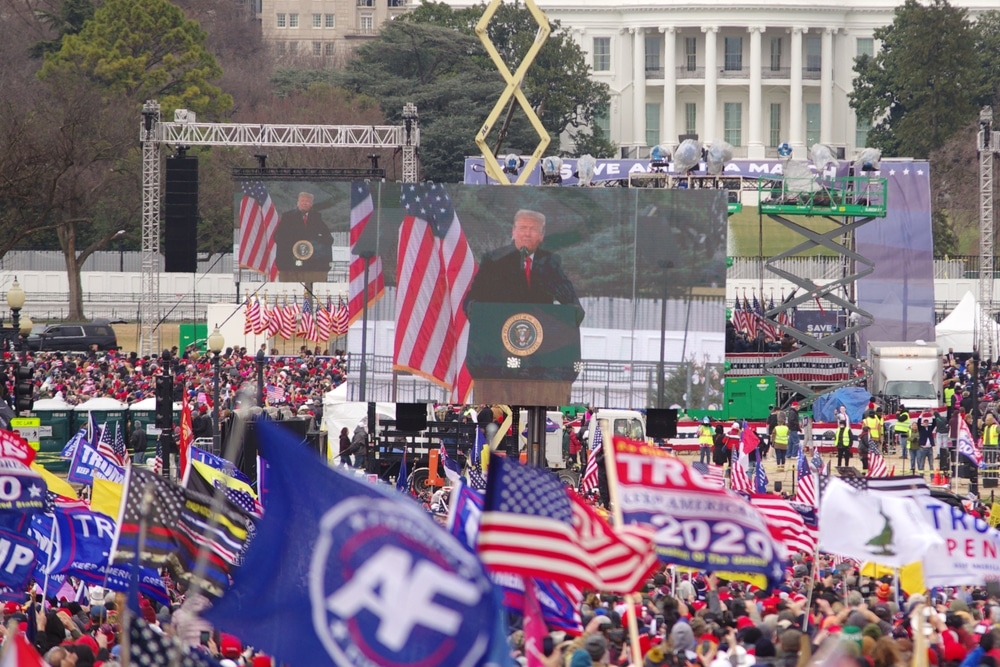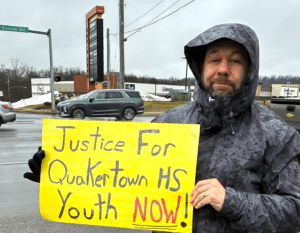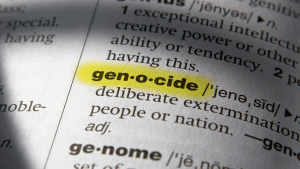This article was originally published by the Center for Media and Democracy.
Since Trump lost the 2020 presidential election, election deniers have come to outnumber other election administrators in 15 counties in key swing states, leading voting rights advocates to warn that their efforts to delay vote counts could create uncertainty and allow for the spread of disinformation.
A major report from the Center for Media and Democracy (CMD) highlighted the elevated threat to the ability to call races definitively and allow for the peaceful transition of power following the November election. It identified more than 200 public and Republican Party officials in swing states who either deny the 2020 election results, have refused to certify previous elections, or spread disinformation about widespread voter fraud.
The report also identified 15 counties in six swing states where election deniers effectively wield control over election administration. In Arizona, these are Cochise and Mohave counties; in Georgia: Spalding County; in Michigan: Wayne County; in New Mexico: Otero County; in Nevada: Lander, Nye, and Washoe counties; and in Pennsylvania: Berks, Bradford, Butler, Fayette, Lancaster, Schuylkill, and Westmoreland counties.
In Pennsylvania, which has the largest number of counties with election deniers running elections, at least 33 county officials throughout the state have made public statements in person or on social media supporting Trump’s endless election lies or policies rooted in election denialism.
Many of these election administrators are also steeped in other conspiracy theories, often ones that are racist, sexist, and Islamophobic.
And, despite expressing outright denialism, many of these election administrators have been able to retain their official standing thanks to sympathetic local governments. In Luzerne County, Pennsylvania, six of the seven Republican county council members are election denialists who closed ranks to prevent a Democratic-led effort to remove one denialist from her position.
READ: US Voters Concerned About Post-Election Violence and Efforts to Overturn the Results: AP-NORC Poll
What’s more, in swing states such as Pennsylvania and Wisconsin, election officials have been receiving targeted ads from groups with ties to the Election Integrity Network — the right-wing nonprofit run by extremist MAGA lawyer Cleta Mitchell — falsely purporting that the certification of elections is optional rather than obligatory.
“The important thing to know is that these county-level election officials, even if they try to go rogue, it’s not the end of the story,” Matt Cohen, a senior researcher with Democracy Docket, told CMD. “If they refuse to certify, it doesn’t mean the election isn’t called fairly. There are mechanisms to make sure that it is,” and, though those mechanisms vary from state to state, most states allow for a court order compelling certification.
In some states, several additional guardrails have recently been put in place. In October, a county judge in Georgia ruled that local election officials cannot refuse to certify elections. The lawsuit was brought by Julie Adams, a new member of the Fulton County Board of Elections who also serves as the regional coordinator for Mitchell’s Election Integrity Network.
In his ruling, the judge warned that “delays in documents or information are no justification for refusing to certify,” saying that the mere existence of concerns or doubts are “not cause to delay or decline certification.”
Yet the real problem is that such delays could be exploited to support a false narrative of election fraud.
“What we’ve seen in past election cycles is that delays sow these seeds of doubt in the public,” Cohen said. Delays can allow “bad actors to start spreading narratives about election fraud and people stealing the election because they’re taking longer to count the votes or call the election.”
For months, the former president and Republicans across the country have been raising false alarms that voting by noncitizens will tilt the election results in favor of Democrats. Noncitizen voting is illegal in all federal and state elections and is “vanishingly rare,” according to election experts. Still, Trump and the MAGA universe has gone all in on this “Big Lie 2.0” as the basis for claiming that the election was stolen if he loses.
In the wake of the 2020 insurrection, Congress passed the Electoral Count Reform Act (2022), which clarifies the procedure for appointing electors, requires state governors to certify election results and send slates of electors to Congress by December 11, and allows candidates to sue in federal court they fail to do so.
After all ballots are cast on Election Day, election experts expect that the additional guardrails and public transparency in the vote count and certification process will lead to fewer issues this year. “A lot of counties in these battleground states have spent a lot of money since the last election to make that [vote-counting] process even more transparent,” Cohen said.
Yet the real test may be in years to come if election deniers are emboldened to run for state offices and are able to make changes to state laws that make it harder to vote, or even change the processes for counting ballots and certifying election results.
“What happens next week will inform how worried [we] should be for 2026 or 2028,” Cohen said.
Sign up for CMD’s biweekly newsletter to stay updated with their latest work!






